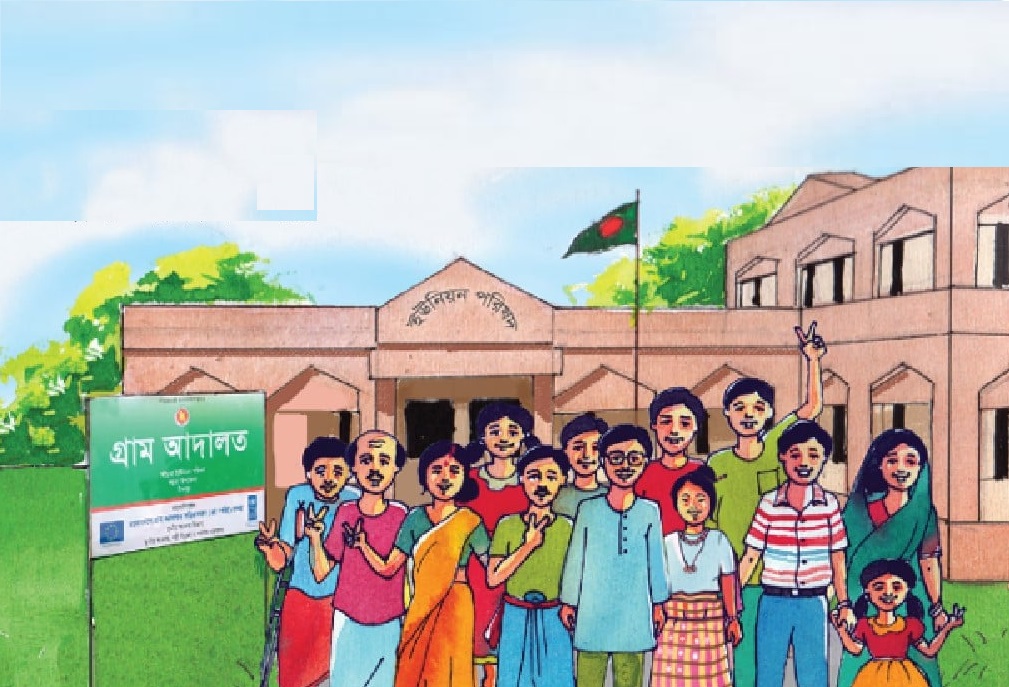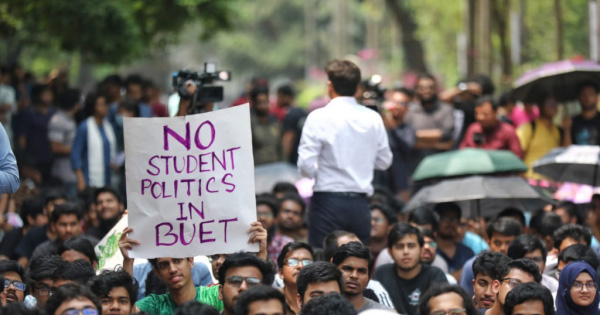Bangladesh’s economic landscape has navigated treacherous waters over the past 18 months, grappling with the daunting challenges of escalating inflation and dwindling foreign currency reserves. Despite sporadic initiatives undertaken under the watchful eye of global financial institutions like the International Monetary Fund (IMF), the government’s response has proven insufficient in addressing the root causes, exacerbating the nation’s economic tribulations.
The prevailing stance of policymakers and the central bank, seemingly influenced by the looming specter of national elections slated for January, betrays a shortsighted approach that prioritizes immediate political gains over the imperative of long-term economic stability. This procrastination in implementing vital reforms poses a grave risk of further deteriorating macroeconomic conditions, casting a pall of uncertainty over the country’s economic resilience and prosperity. One of the foremost concerns revolves around the alarming depletion of foreign currency reserves, which have witnessed a precipitous decline since August 2021, plummeting from approximately $40.7 billion to a disconcerting $20.96 billion by October this year. Such a drastic erosion underscores the urgent need for decisive action to stem the outflow of reserves and restore investor confidence in Bangladesh’s economic trajectory.
The IMF has sounded the alarm for monetary tightening, accompanied by a prudent fiscal policy and enhanced exchange rate flexibility, as indispensable measures to address the prevailing macroeconomic imbalances. However, the government’s reluctance to embrace such measures until after the electoral dust settles risks exacerbating the crisis, imperiling the country’s economic fortitude. Moreover, the persistent depreciation of the Bangladeshi taka against the US dollar, coupled with the government’s inertia in transitioning to a market-oriented exchange rate regime, has further fueled inflationary pressures and undermined the competitiveness of domestic industries. Despite the taka’s marked depreciation of nearly 28 percent since February last year, substantive measures to mitigate its adverse impact on imports and exports remain conspicuously absent.
The absence of market-driven policies and regulatory interventions has compounded supply-side disruptions, exacerbating inflationary pressures that have persistently hovered above double digits for an extended period. In October alone, inflation surged to a staggering 9.93 percent, significantly surpassing the government’s targeted threshold of 6 percent. This sustained inflationary onslaught, particularly in food prices, has eroded the purchasing power of ordinary citizens, disproportionately affecting vulnerable households. Furthermore, the government’s inertia in addressing monopolistic tendencies and supply chain disruptions has exacerbated the inflationary spiral, perpetuating a vicious cycle of rising prices and diminishing consumer confidence. The glaring dearth of evidence-based policymaking and regulatory oversight has bestowed undue leverage upon vested interests to manipulate market dynamics, heightening price volatility and exacerbating economic fault lines.
Bangladesh’s economic woes necessitate a concerted and expeditious overhaul of policies that prioritizes long-term stability over fleeting political gains. It is imperative for the government to heed the counsel of economists and international financial institutions, swiftly implementing measures to recalibrate macroeconomic equilibrium, fortify institutional integrity, and foster inclusive prosperity. Failure to heed this clarion call risks further undermining the nation’s economic resilience and jeopardizing its developmental aspirations. The time for action is now. In light of these challenges, it is essential for the government to adopt a multifaceted approach that addresses the structural deficiencies plaguing the economy while fostering an environment conducive to sustainable growth and development. One critical aspect that demands immediate attention is the need to enhance revenue mobilization and fiscal discipline to reduce reliance on external borrowing and alleviate the burden on public finances.
Efforts to broaden the tax base, streamline tax administration, and combat tax evasion are paramount to bolstering revenue generation and ensuring fiscal sustainability. Moreover, prudent expenditure management and prioritization of key sectors such as healthcare, education, and infrastructure are essential to maximize the impact of public spending and stimulate economic growth. In addition to fiscal reforms, there is an urgent need to revitalize the financial sector and enhance its resilience to external shocks. Strengthening regulatory oversight, improving risk management practices, and promoting financial inclusion can help mitigate systemic risks and enhance the stability of the banking system. Additionally, fostering a conducive environment for private sector investment and entrepreneurship is vital to unlocking the economy’s growth potential and creating employment opportunities.
Addressing structural bottlenecks in key sectors such as agriculture, manufacturing, and services is imperative to drive inclusive and sustainable growth. Enhancing productivity, promoting technological innovation, and improving access to markets and credit can help catalyze sectoral transformation and unleash the economy’s latent potential. Likewise, investing in human capital development and fostering skills development and capacity building are essential to equip the workforce with the skills and competencies required to thrive in the modern economy. Providing access to quality education, vocational training, and healthcare services can empower individuals and communities, enhance productivity, and promote social mobility.
At the same time, it is essential to prioritize environmental sustainability and climate resilience to safeguard the country’s natural resources and mitigate the adverse impacts of climate change. Investing in renewable energy, promoting energy efficiency, and implementing climate adaptation measures can help build a more sustainable and resilient economy while mitigating environmental risks. In addition, strengthening governance institutions, promoting transparency and accountability, and combating corruption are essential to build trust in the government and create an enabling environment for sustainable development. Upholding the rule of law, protecting property rights, and ensuring a level playing field for businesses can foster investor confidence, stimulate investment, and promote economic growth.
In conclusion, Bangladesh stands at a critical juncture in its economic development journey, facing formidable challenges but also significant opportunities. By prioritizing long-term stability over short-term political expediency, embracing evidence-based policymaking, and fostering inclusive and sustainable development, the government can steer the country towards a path of shared prosperity and sustainable growth. The road ahead may be fraught with obstacles, but with concerted efforts and decisive action, Bangladesh can overcome its economic challenges and realize its full potential as a dynamic and resilient economy on the global stage.







